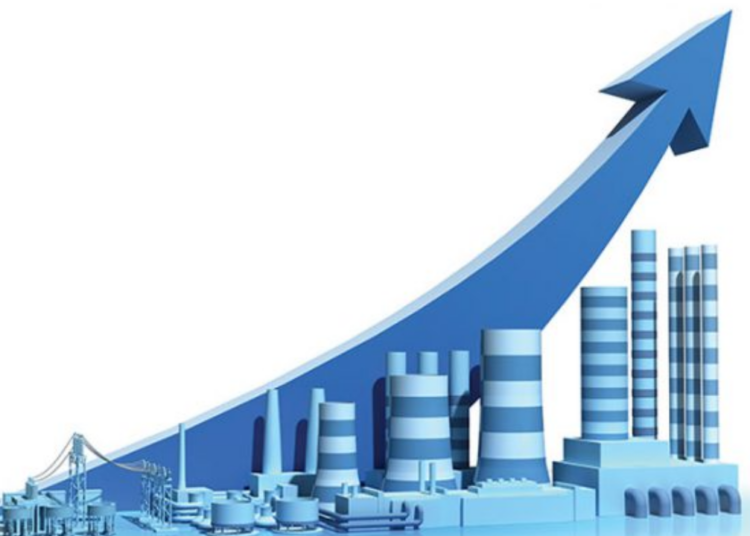Inadequate and high cost of energy have been identified by manufacturers as the core challenges of manufacturing operations in the country.
Nigeria has over 200 million people and a huge productive sector that are energy-dependent, but electricity distributed in the country has been a mere 4000MW. This explains the reason why various Manufacturers CEO Confidence Index (MCCI) ranked poor supply of electricity among the top challenges of the sector. In addition, the energy challenges are variously represented as the cause for the poor competitiveness of the economy and manufacturing sector.
The recent report stated that, Nigeria is natural endowed with hydro-carbon as well as oil reserves of about 37 billion barrels as at 2021 and gas reserves of about 5.8 trillion cubic meter, saying, unfortunately, the country has failed to exploit these resources to the benefit of the economy.
“As a member of the Organisation of Petroleum Exporting Countries(OPEC), production of crude has continuously fallen below OPEC quota for country due to gross inefficiency in the management of the oil sector. Of the 1.8 million barrels quota for Nigeria, the country has not been able to export beyond 1.3 million barrels even it has been officially admitted that this crude oil theft going on in the creeks,” it stated.
Stakeholders Views
In its report, Manufacturers Association of Nigeria (MAN) recommended domestic refining and improved energy situation in the country, adding that, there was need to review the current status of the four national refineries to determine their true status; commission the CHIYODA Group, the Japanese company that built the national refineries to rehabilitate them to resume domestic refining; review the Nigerian energy policy and ensure available energy sources, particularly natural gas is optimally explored and exploited.
It called for the creation of functional incentive to attract private sector investment in gas aggregation to end the current gas flaring. MAN advocated the creation of incentive to resuscitate private sector investment in the petrochemical industry; improve the capital expenditure on the energy sector for greater public investment in energy development and carry out and utilise the outcome, the Egypt’s energy development strategy.
Director-general, Manufacturers Association of Nigeria (MAN), Segun Ajayi-Kadir, on his part, had said, there was need for government to critically focus on the challenges that have continued to limit the sector’s performance.
He urged government to incentivise and remove the binding constraints that limit the day-to-day survival of the sector, as the challenges facing the sector have limited its competitiveness, saying the downturn in the sector’s performance is connected to insufficient power supply, high cost of diesel among others.
Director of Centre for the Promotion of Private Enterprise (CPPE), Dr. Muda Yusuf said: “there is a need to also consolidate the power sector reform. An enabling environment must be created to sustain current private sector investment in the sector and attract new private capital to the electricity sector.
“Urgent reforms are vital with respect to electricity tariff, metering and deepening of energy mix. We need robust incentives (fiscal and monetary) to boost private investment in renewable energy.
“We should reform the budget and appropriation processes to prioritise infrastructure financing and human capital development. This would boost productivity and competitiveness of the economy. Adoption of these reform initiatives would guarantee progression towards fiscal consolidation, reduction in fiscal deficit, diminishing need for borrowing and abating debt service burden.”
The director-general of Lagos Chamber of Commerce & Industry (LCCI), Dr. Chinyere Almona, explained that, the manufacturing sector suffered from headwinds like scarcity of FOREX for import of inputs, weakened consumer demand due to weak purchasing power, high energy cost, logistical challenges, policy uncertainties, and harsh regulatory environment.
She said: “with these factors persisting into 2023, we may likely record a growth in the sector away from the negative growth of -1.9 per cent as at third quarter (Q3) of 2022. With lowering imports due to forex scarcity, local manufacturing could rev up in growth to meet the growing unmet local demand for hitherto imported finished products.
“However, this can only happen if we address issues like rising inflation, scarcity of forex, high energy cost, high interest rates, and logistics challenge due to insecurity in most parts of the country. In the case of subsidy removal by the new administration, we should expect some shocks to the economy in the short term with possibility of adjusted pricing and demand in response to market forces in the long run.”
She noted that “the Dangote Refinery coming into operations by mid-year will boost production levels and support growth in the manufacturing sector. However, the contribution of manufacturing to GDP may fall from the 8.2 per cent recorded during the third quarter of 2022 except the government takes urgent and targeted financing support to critical productive infrastructure in the country.”





